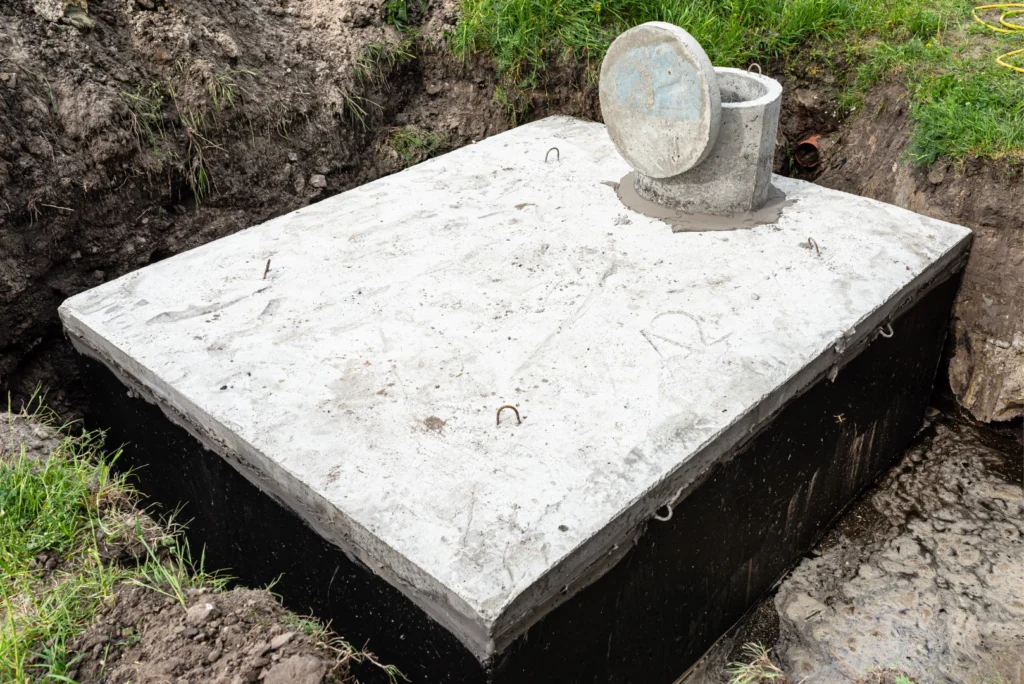Maintaining your septic system is crucial for the overall longevity of your home's wastewater management system. A properly functioning septic system ensures the safe disposal of household waste, protects the environment, and safeguards public health. Today's blog will explore steps to extend your home’s septic system lifespan.
Factors Affecting a Septic System Lifespan
For homeowners with an on-site engineered septic system, it will consist of a buried septic tank where solid wastes are captured. A downhill leach field is where the remaining wastewater from household wet areas is treated and ultimately released into the ground. However, these systems can become clogged or malfunction without proper maintenance and care.
These factors influence a septic system's lifespan:
-
Septic Tank Construction
-
Soil Conditions Where it's Installed on a Property
-
Water Conservation and Usage Patterns
-
Frequency of Maintenance
Septic Tank Construction
The choice of septic tank materials is crucial in determining its lifespan. Tanks made from durable materials such as concrete or fiberglass tend to have a longer lifespan than those made from less sturdy materials. Proper installation and regular inspections are also essential to ensure the tank remains structurally sound.
Soil Conditions Where A Septic System is Installed
The condition of the soil surrounding the septic system can significantly impact its lifespan. Well-draining soil allows for better filtration and absorption of wastewater, reducing strain on the system. On the other hand, poor draining soil can lead to saturation and potential system failure.
Water Conservation and Usage Patterns
Water usage patterns within a household can affect how quickly a septic system reaches capacity. Excessive water usage overloads the system and shortens its lifespan. It's important to practice water conservation measures and avoid putting excessive strain on the septic system.
Frequency of Maintenance
Property owners who make informed decisions about the care of their septic systems can maximize the longevity of the system by evaluating and performing the following:
-
Regular Pumping: Routinely schedule and perform septic tank pumping.
-
Mindful Water Usage: Conserve and avoid excessive water usage to prevent system overload.
-
Avoid Harsh Chemicals: Use septic-safe cleaning products and avoid pouring chemicals down drains.
-
Maintain Drainage Field: Protect the drainage field from heavy objects or vehicles that can damage it.
-
Avoid Flushing Non-Biodegradable Items: Educate household members about what should not be flushed down toilets or drains.
-
Role of Regular Inspections in Extending Your Septic System's Lifespan
One of the critical benefits of septic system inspections is early detection. Trained professionals can spot signs of wear and tear, leaks, or blockages that may not be immediately apparent to homeowners. By catching these issues early on, you can address them promptly, preventing further damage and costly repairs.
Additionally, regular inspections help maintain your septic system's overall health and efficiency. Over time, sludge and solids can accumulate in the tank, leading to clogs and reduced functionality. Inspections allow for timely pumping and cleaning to remove these build-ups and keep your system running smoothly.
Signs of potential issues in a septic system include foul odors around the drain field or inside the house, slow-draining sinks or toilets, gurgling sounds from plumbing fixtures, or unusually lush patches of grass near the drain field. If you notice any of these signs, it's essential to schedule an inspection as soon as possible.
By investing in regular inspections for your septic system, you can proactively address maintenance needs and extend its lifespan. Properly treating your wastewater can save you the expense of costly repairs and safeguard public health and the environment.
Hiring A Professional for Septic System Maintenance and Repairs
Regular maintenance is essential to prevent costly repairs or replacements down the line. You can significantly extend your septic tank's lifespan by adhering to recommended maintenance and inspection practices. A well-maintained septic system can last 20 to 30 years or even longer.
Hiring a professional for septic system maintenance and repairs offers numerous benefits that ensure your septic system's longevity and proper function. Certified technicians with expertise in septic services possess the knowledge and experience necessary to handle any maintenance or repair needs efficiently.
One of the key advantages of hiring a professional is their familiarity with proper maintenance techniques. They can perform routine inspections, pump out the tank when necessary, and identify potential issues before they escalate into major problems. This proactive approach helps prevent costly repairs in the future.
Additionally, professional septic services offer cost-effective solutions. By addressing minor issues early on, they can prevent more extensive damage that may require expensive repairs or a complete system replacement. Regular maintenance ensures optimal efficiency, reducing water usage and minimizing utility bills.
Clements Plumbing Heating & Air is a trusted name in the industry regarding septic system maintenance and repairs. With their team of skilled technicians, they provide reliable services tailored to meet your specific needs. Whether routine maintenance or emergency repairs, you can count on Clement's Plumbing Heating & Air for prompt and efficient solutions.
In conclusion, investing in professional septic services provides peace of mind, knowing that your system is adequately cared for by experts who understand its intricacies. By choosing Clement's Plumbing Heating & Air for your septic needs, you can ensure a well-maintained system that operates efficiently for years. Call Clements Plumbing Heating & Air at (417) 682-3797.
